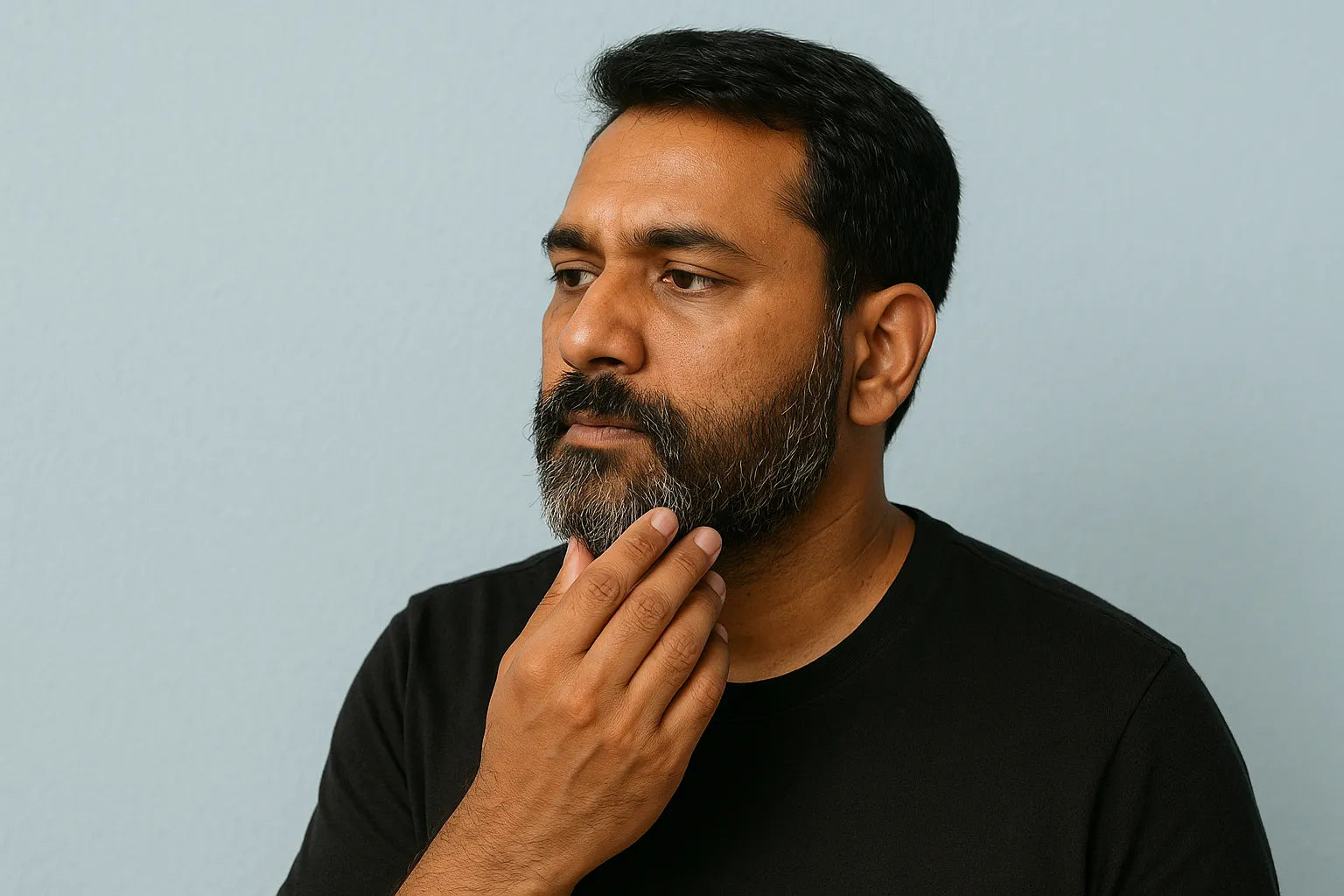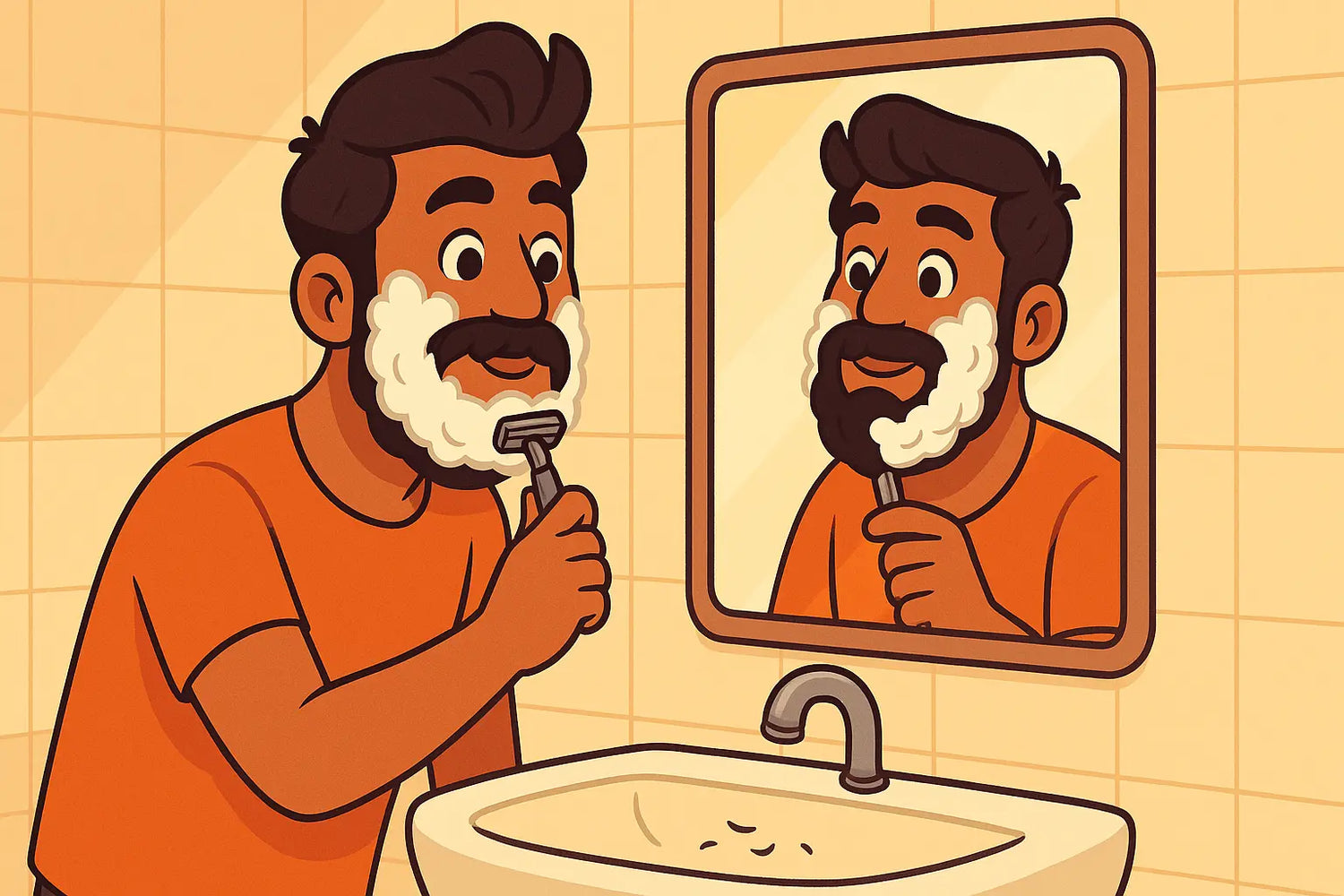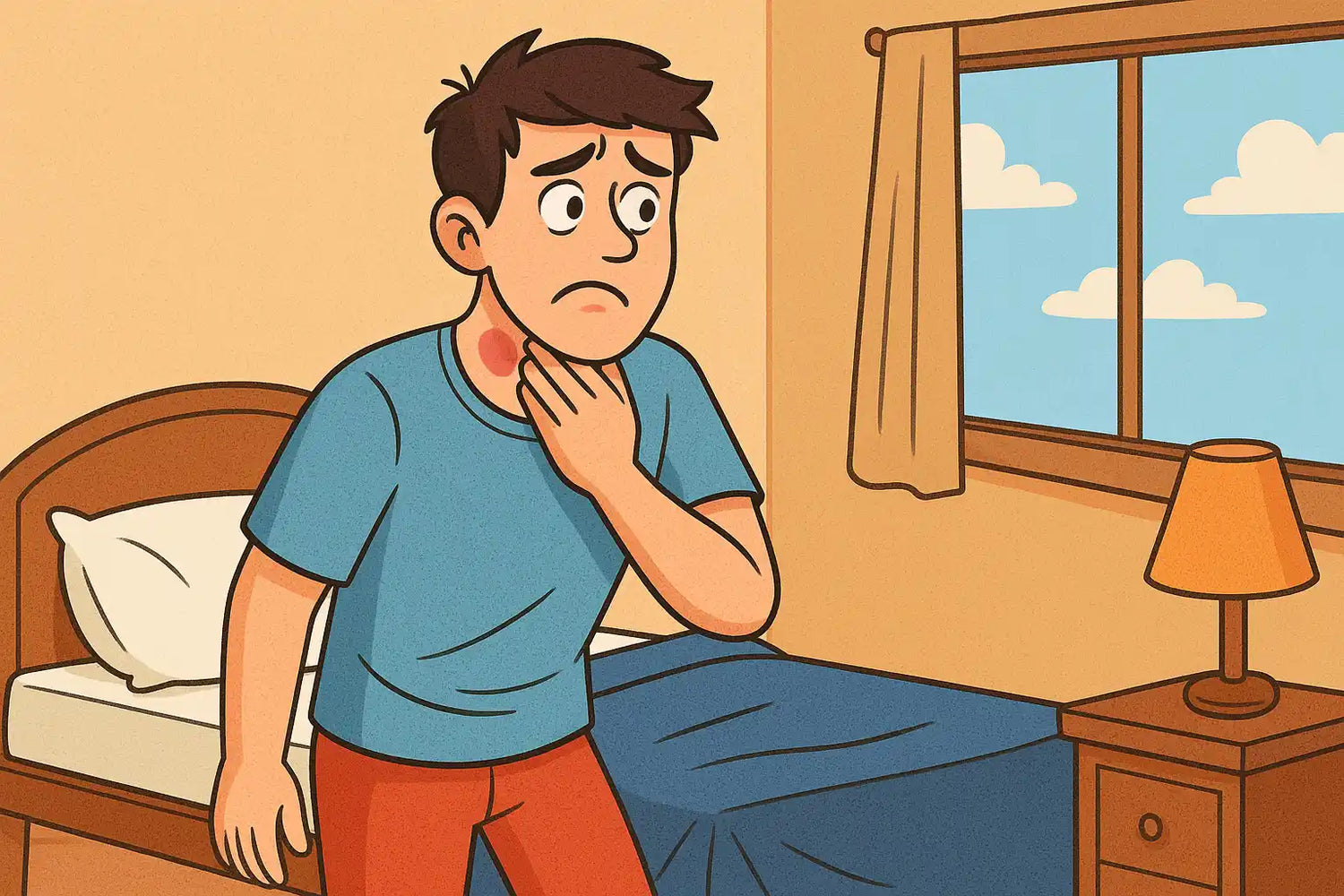For many men, grey hair is an inevitable part of life. As we age, we start to notice a few silver strands here and there, and sooner than we know it turns entirely white. But the early onset of grey hair makes some feel a tinge of insecurity. If you’re one of the men who are dealing with greying hair, it’s good to understand more about this process, why it happens, and how you can manage it – whether you want to embrace it, conceal it, or slow it down.
Why Does Hair Turn Grey?
Grey hair is a natural part of the aging process, and it’s caused by a decrease in the pigment melanin in the hair follicles. As we age, our bodies produce less melanin, and the colour in our hair fades, resulting in grey or white hairs. Interestingly, beard hair tends to grey earlier than scalp hair, which is why you might notice your beard turning grey while your head hair remains dark.
However, the timing of when and how fast your hair turns grey is mostly determined by genetics. If your father or grandfather went grey early, chances are you’ll follow the same pattern. But that's not all; external factors like stress, poor diet, smoking, and certain medical conditions can also contribute to premature greying.
The Insecurities Around Greys
While some men proudly embrace their greys as a symbol of maturity and experience, others might struggle with the change. For younger men, grey hair can feel like an unwanted sign of getting older, and in a society obsessed with reversing symptoms of aging, this can trigger insecurities. Some men may feel that grey hair doesn’t align with their personal style or how they want to present themselves. If you're dealing with these thoughts, it's important to remember that grey hair is completely natural and there's no need to feel pressured to conform to unrealistic beauty standards.
Can Greys Be Slowed or Reversed?
The unfortunate truth is that once the melanin in your hair follicles fades, there's no way to bring back the natural colour. That said, there are a few lifestyle changes and practices that may help slow down the process and keep your hair healthier for longer.
1. Eat a nutrient rich diet
A healthy diet is one of the best ways to keep your hair looking great and possibly slow down the greying process. Incorporate vitamin B12, antioxidants, and iron in your diet.
2. Manage stress effectively
Chronic stress can contribute to a variety of health problems, including hair loss and potentially accelerated greying. Taking steps to manage stress can therefore benefit both your overall health and your hair.
3. Adopt healthier lifestyle habits
Lifestyle habits such as smoking can have detrimental effects on your overall health, including skin and hair. Making conscious healthy choices is an important step in maintaining your skin and hair.
The Concealer Solutions
There are plenty of cosmetic options to cover grey hairs, with the most popular being dyes. Dyes can be a great solution to keep your greys under wraps, but it is important to consider the negatives as well.
Beard and hair dyes can contain harsh chemicals, such as ammonia and para- phenylenediamine (PPD) which can cause skin irritation, allergic reactions, or other adverse effects. If you're considering using dyes, it's crucial to test it on a small patch of skin 48 hours before applying it to ensure you don’t have an allergic reaction.
If you’re looking for a safer, more natural option, consider using colours that are free from harsh chemicals or made with plant-based ingredients. Semi-permanent or temporary solutions are typically gentler on your skin and hair.
Keep Your Hair Healthy and Vibrant
A good grooming routine can go a long way in maintaining the health of your hair and beard. Regular washing and conditioning with specific products will keep them soft and manageable. Use a mild hair and beard shampoo and a nourishing conditioner to keep it hydrated.
Just like the rest of your body, hair also needs moisture. Using oils and balms that contain natural oils like argan, jojoba, or coconut oil to keep your hair and beard soft, shiny, and healthy. These oils also help prevent dryness and flakiness underneath the hair.
Ultimately, greying is a natural sign of aging and experience. Whether you choose to embrace it or manage it with dyes and lifestyle changes, the most important thing is to feel confident in your own skin. Make sure to choose products that are safe for your skin and hair. And remember, your hair or beard, whether grey or not, deserves the best care possible.





